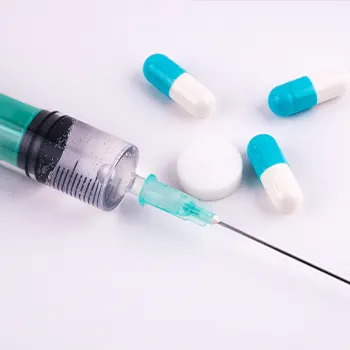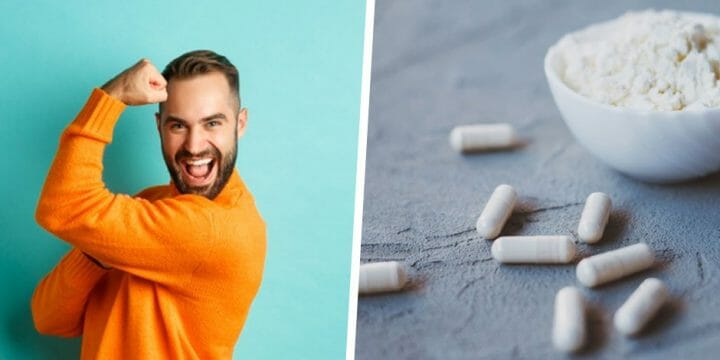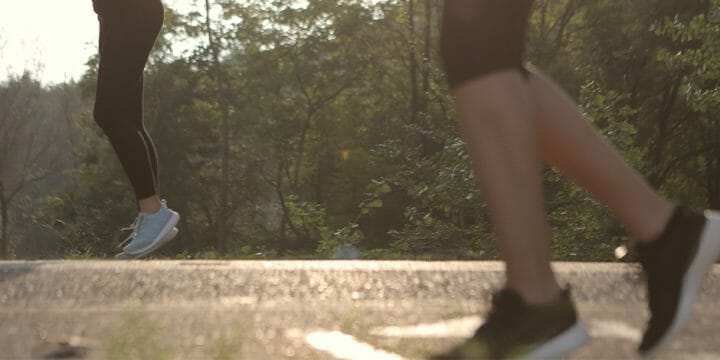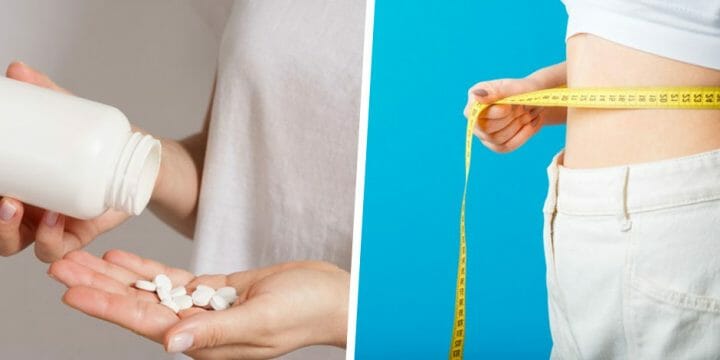Someone might have told you to take testosterone boosters if you suffer from low testosterone.
But it might not be clear how they can help you. Also, you might be unsure whether they’ll eliminate the side effects of low T.
I spent hours researching studies and science-backed sources to help you find the answer, and it turns out that boosters can do much more than just increase testosterone levels.
Discover the most important findings below.
Quick Summary
- Testosterone boosters naturally increase testosterone levels by boosting the body with the required minerals and vitamins for testosterone production.
- Some benefits attributed to testosterone boosters are improved libido, sperm quality, increased facial hair, and increased muscle mass.
- Studies published on the National Institutes of Health website found that ginseng can help preserve sperm, increase libido, boost sperm production and quality, and treat erectile dysfunction.
- Drawing from my experience, I've found that testosterone boosters, when used correctly, can significantly contribute to achieving fitness and health goals.
What Do Testosterone Boosters Do?

Testosterone boosters increase testosterone levels naturally, i.e., by equipping your body with the essential vitamins and minerals for testosterone production.
As opposed to testosterone replacement therapy (TRT), boosters don’t contain testosterone.
What’s more, TRT can only be prescribed to you by a doctor, while boosters can be bought without a prescription.
In this article, we’ll focus only on testosterone boosters.
Besides boosting your testosterone, research by the International Journal of Health Sciences shows that boosters will also increase a lot of other health indicators [1].
Namely the following:
- Libido (sex drive)
- Sperm production
- Sperm quality
- Muscle mass
- Facial hair growth
Boosters are recommended for those who suffer from low testosterone, as low testosterone may decrease the quality of sex life and cause hair loss. They can even lead to male infertility and erectile dysfunction, as reported by WebMD [2].
As I always advise my clients, you should combine boosters with other testosterone-boosting habits and foods for the best results.
For example, you could combine them with strength training and magnesium-rich foods. But I’ll give you even more ideas on what to do and eat to boost your T below.
Common Ingredients In Testosterone Boosting Supplements

Here are some of the most common ingredients found in testosterone supplements:
D-Aspartic Acid: Studies by the National Library of Medicine have shown that this amino acid can enhance testosterone levels in male animals [3].
However, human studies produced inconsistent results. More clinical trials are needed to conclude whether or not D-aspartic acid can boost low T. Still, you might want to give it a go.
Fenugreek: Fenugreek is an herb that might stimulate testosterone production. For example, one study published by the International Journal of Medical Sciences found that taking 500 mg of fenugreek supplement over 12 weeks boosted testosterone levels by 44% [4]. That’s an incredible finding.
However, I should note that some studies by the International Journal of Exercise Science found fenugreek ineffective in raising low testosterone [5]. So, set your expectations accordingly.
Asian Ginseng: Ginseng has been traditionally used in China and the Far East to improve sexual function in males, and science seems to confirm its positive effects on low testosterone. For example, one study found that ginseng intake skyrocketed testosterone levels in young women [6].
Other studies published by the National Institutes of Health found that ginseng can help preserve sperm, increase libido, boost sperm production and quality, and treat erectile dysfunction [7]. However, these were conducted on animals and may not apply to humans.
The most effective boosters will contain these ingredients, along with zinc and vitamin D.
It's noteworthy that beyond these common ingredients, emerging research suggests the potential of lesser-known substances like Eurycoma Longifolia and Ashwagandha, which have shown promising results in preliminary studies for boosting testosterone levels and improving overall hormonal balance.
Potential Health Risks And Side Effects
Some common side effects of testosterone boosters that some of my clients have reported include:
- Skin problems (e.g., acne)
- Hair loss
- Prostate issues
- Mood swings
- Decreased kidney and liver function
Testosterone boosters are generally safe when taken as directed.
As a health and performance coach, I advise considering their regulatory and quality control aspects.
Opt for FDA-approved supplements to ensure safety and effectiveness. Be wary of products with undisclosed ingredients or doses; a lack of transparency is often a red flag.
Always check labels for ingredient clarity, and avoid those with harmful additives.
Other Ways to Boost Testosterone

If you have only slightly lowered T, you may try to boost it without using supplements. For a more severe deficiency, I suggest combining these habits and foods with boosters.
Here’s what you should try to increase your T in the most natural way possible:
- Regular exercise: Studies show that men who exercise have higher T levels. Specific forms of training, such as resistance training and HIIT, seem to be especially effective in boosting low T.
- Testosterone-boosting foods: Egg yolks, fish, red meat, beans, and legumes are just some of the foods that have been linked with increased testosterone production.
- Testosterone-boosting music: Some studies have linked testosterone levels with musical preferences. For example, men with higher T prefer rock and heavy metal music. But it seems that the right music can also boost our T levels. It increases dopamine and decreases cortisol, a stress hormone that kills testosterone.
- Vitamin D: Vitamin D deficiency may cause low T. So, try to get out in the sun more, eat more foods rich in it, or consider taking a vitamin D multivitamin supplement.
References:
- https://www.ncbi.nlm.nih.gov/pmc/articles/PMC5870326/
- https://www.webmd.com/erectile-dysfunction/erectile-dysfunction
- https://pubmed.ncbi.nlm.nih.gov/28280794/
- https://www.ncbi.nlm.nih.gov/pmc/articles/PMC5278660/
- https://digitalcommons.wku.edu/ijesab/vol2/iss1/13/
- https://www.ncbi.nlm.nih.gov/pmc/articles/PMC7352699/
- https://www.ncbi.nlm.nih.gov/pmc/articles/PMC3861174/
About The Author
You May Also Like






